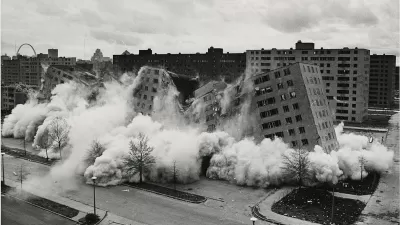With a lack of suitable rental units and a lack of willing landlords, the city of Pittsburgh provides a case study for the failure of the Housing Choice Voucher Program to live up to its potential.
"It can take years to get a Section 8 voucher in Pittsburgh. But it takes just four months to lose it," according to an article by Kate Giammarise. The threat of losing a voucher refers to the 120-day time limit for finding a qualifying residence once a recipient has received a voucher. The time limit is especially problematic due to a shortage of units and a lack of landlords willing to accept subsidized rent.
Under the Housing Choice Voucher Program, or Section 8, as it's commonly known, "[a] family that receives a voucher must find a rental unit that meets a minimum standard and can pass a quality inspection. A subsidy is then paid by the housing authority administering the program directly to the landlord; the family pays the difference between the actual rent and the subsidy."
The key problem examines in the article is the willingness of landlords to accept vouchers, which often forces program recipients to lose their vouchers. Vouchers expire frequently enough that the Neighborhood Legal Services Association employs families who have lost vouchers.
More evidence of the vouchers' failure to live up to the promises of the program: the amount of money spent by the city compared to the amount of money the city receives for the program. "In 2013, the Housing Authority of the City of Pittsburgh received $41.9 million in voucher funding from the federal government but spent only $29.8 million of that on voucher payments," reports Giammarise. In 2014, "$13 million of the Housing Authority of the City of Pittsburgh’s $43.2 million voucher allocation didn’t go to vouchers." The article details how that remaining money was used, and also cites a number of experts who describe possible steps for improving the program in the city of Pittsburgh.
FULL STORY: For those with Section 8 vouchers, finding suitable housing difficult

Alabama: Trump Terminates Settlements for Black Communities Harmed By Raw Sewage
Trump deemed the landmark civil rights agreement “illegal DEI and environmental justice policy.”

Planetizen Federal Action Tracker
A weekly monitor of how Trump’s orders and actions are impacting planners and planning in America.

Why Should We Subsidize Public Transportation?
Many public transit agencies face financial stress due to rising costs, declining fare revenue, and declining subsidies. Transit advocates must provide a strong business case for increasing public transit funding.

Understanding Road Diets
An explainer from Momentum highlights the advantages of reducing vehicle lanes in favor of more bike, transit, and pedestrian infrastructure.

New California Law Regulates Warehouse Pollution
A new law tightens building and emissions regulations for large distribution warehouses to mitigate air pollution and traffic in surrounding communities.

Phoenix Announces Opening Date for Light Rail Extension
The South Central extension will connect South Phoenix to downtown and other major hubs starting on June 7.
Urban Design for Planners 1: Software Tools
This six-course series explores essential urban design concepts using open source software and equips planners with the tools they need to participate fully in the urban design process.
Planning for Universal Design
Learn the tools for implementing Universal Design in planning regulations.
Caltrans
Smith Gee Studio
Institute for Housing and Urban Development Studies (IHS)
City of Grandview
Harvard GSD Executive Education
Toledo-Lucas County Plan Commissions
Salt Lake City
NYU Wagner Graduate School of Public Service



























